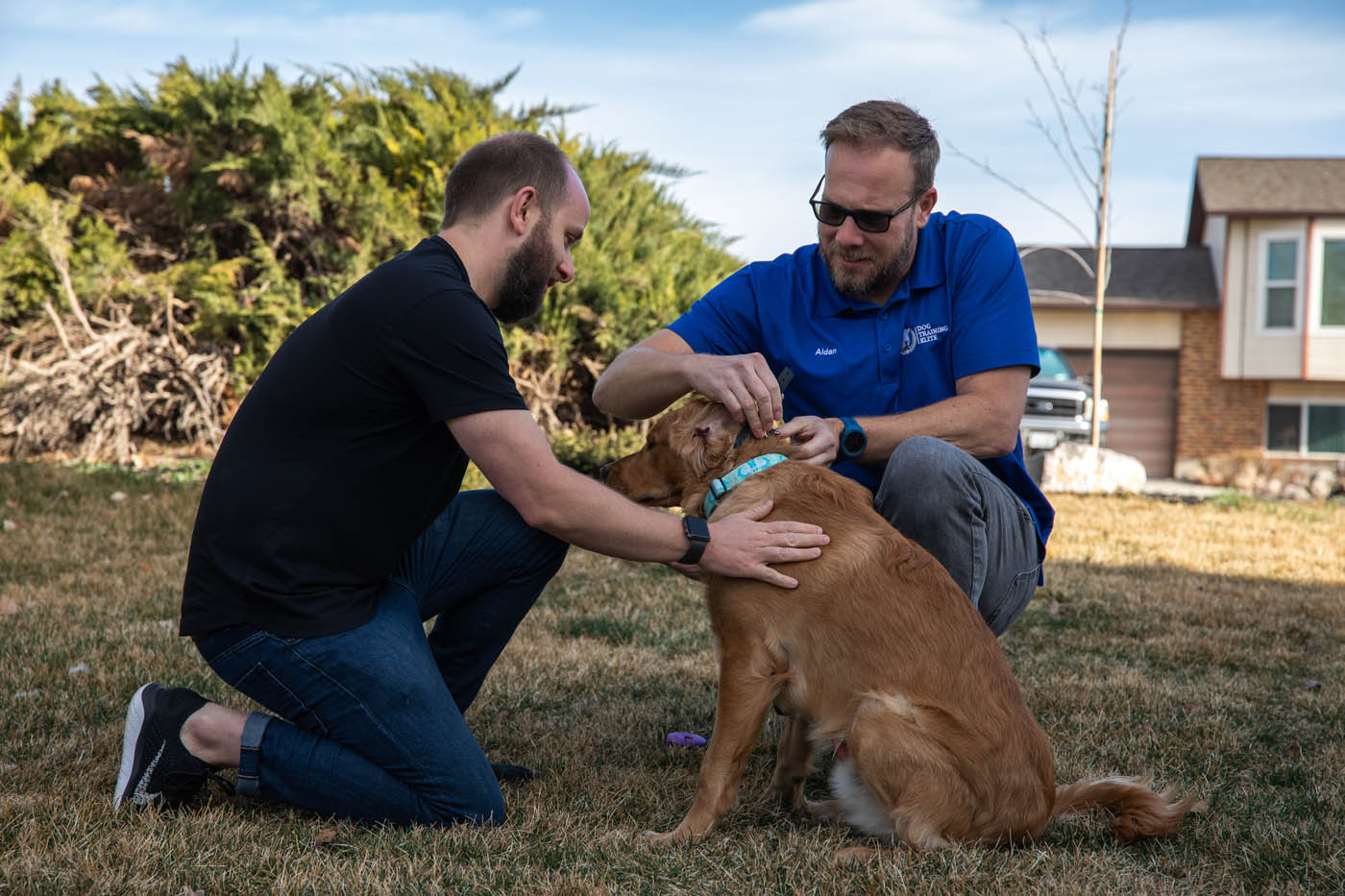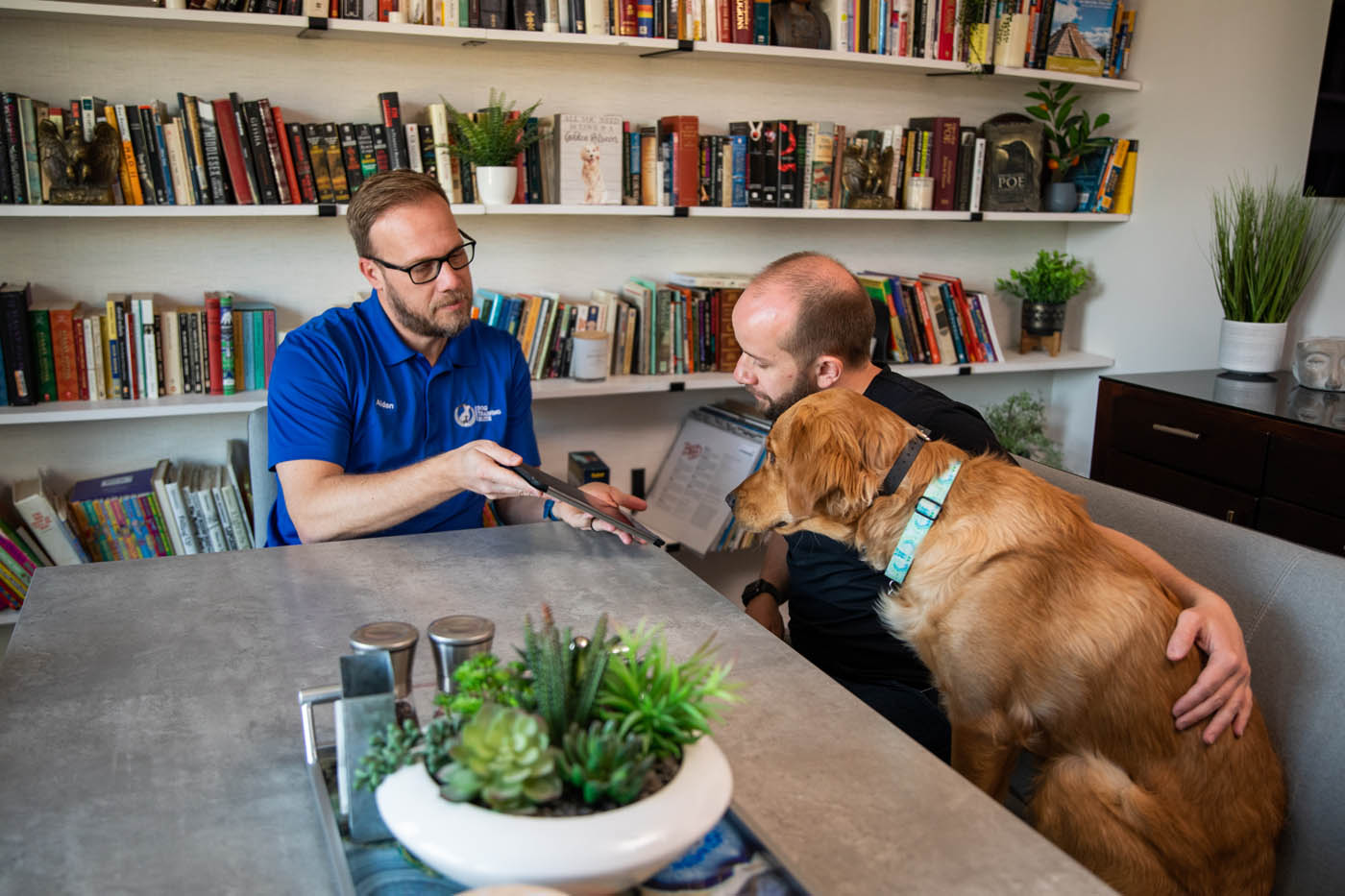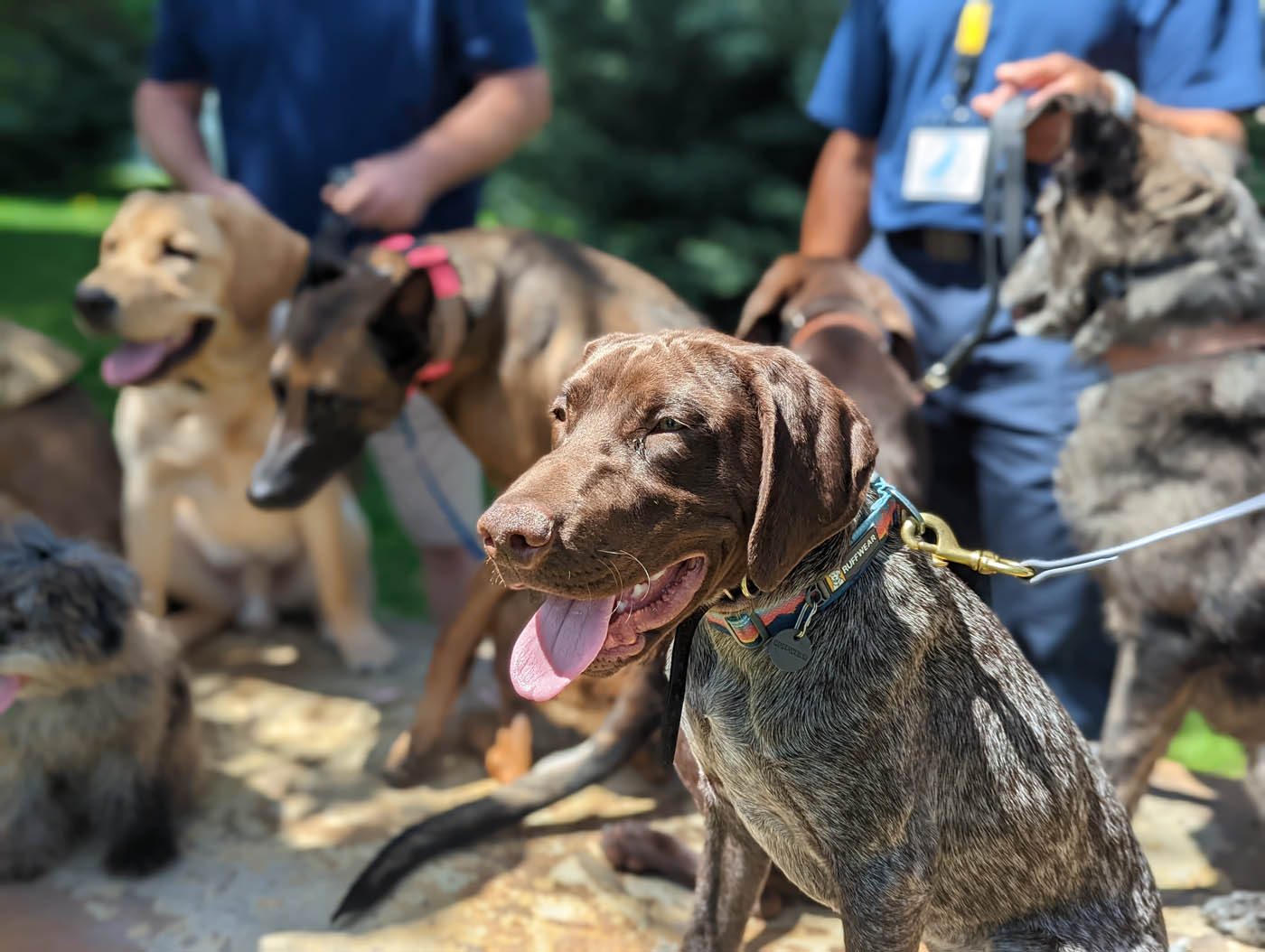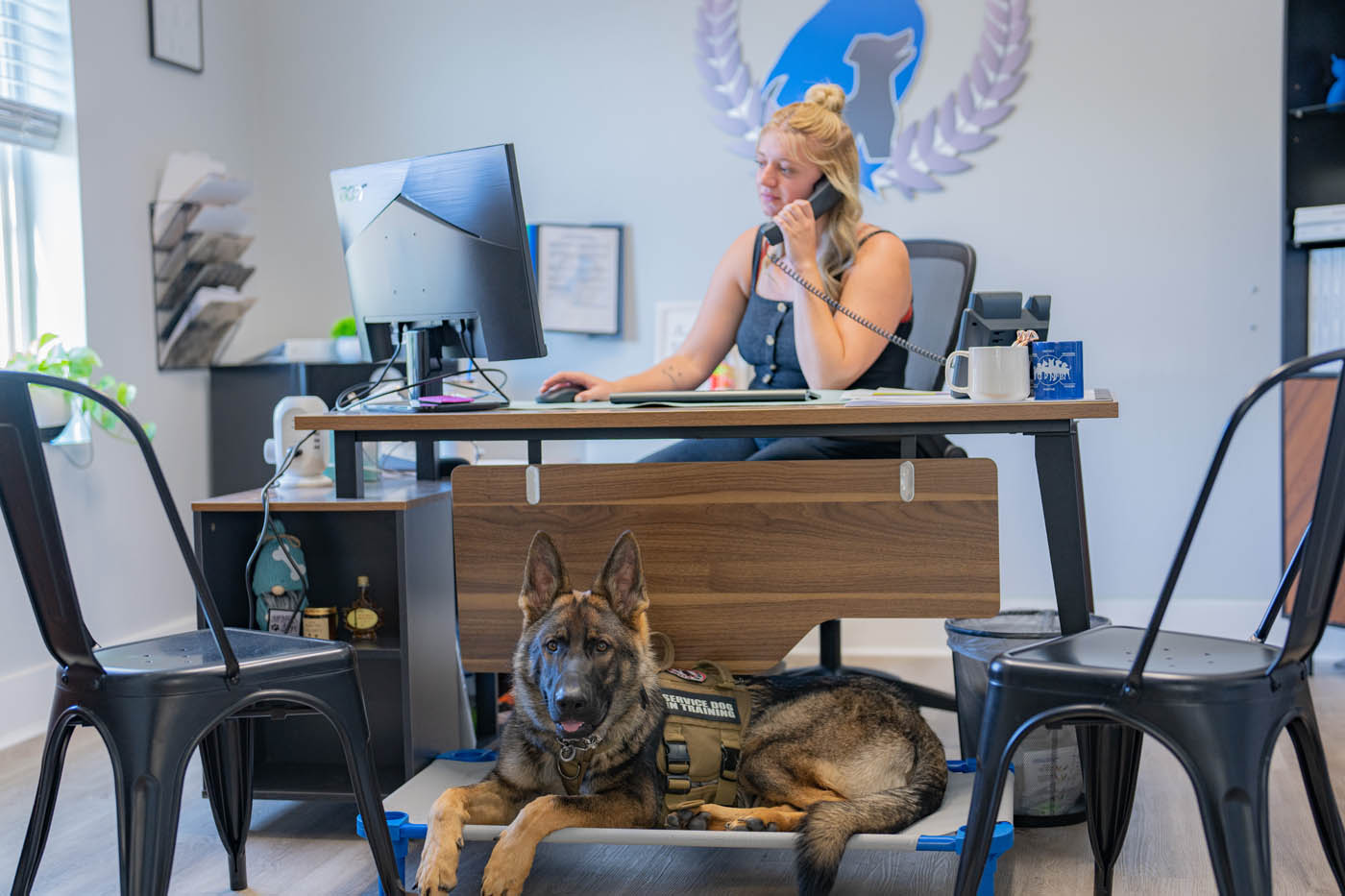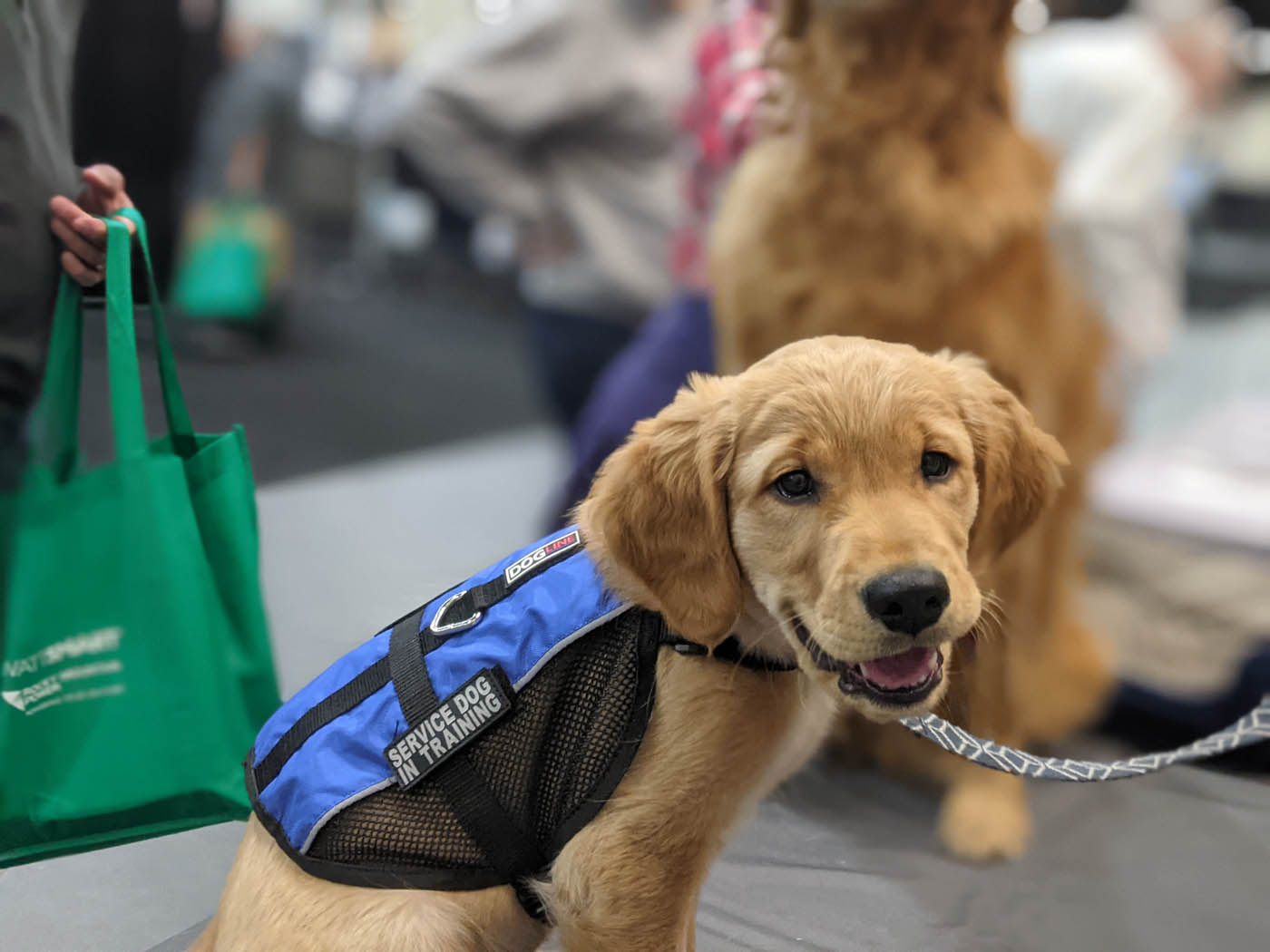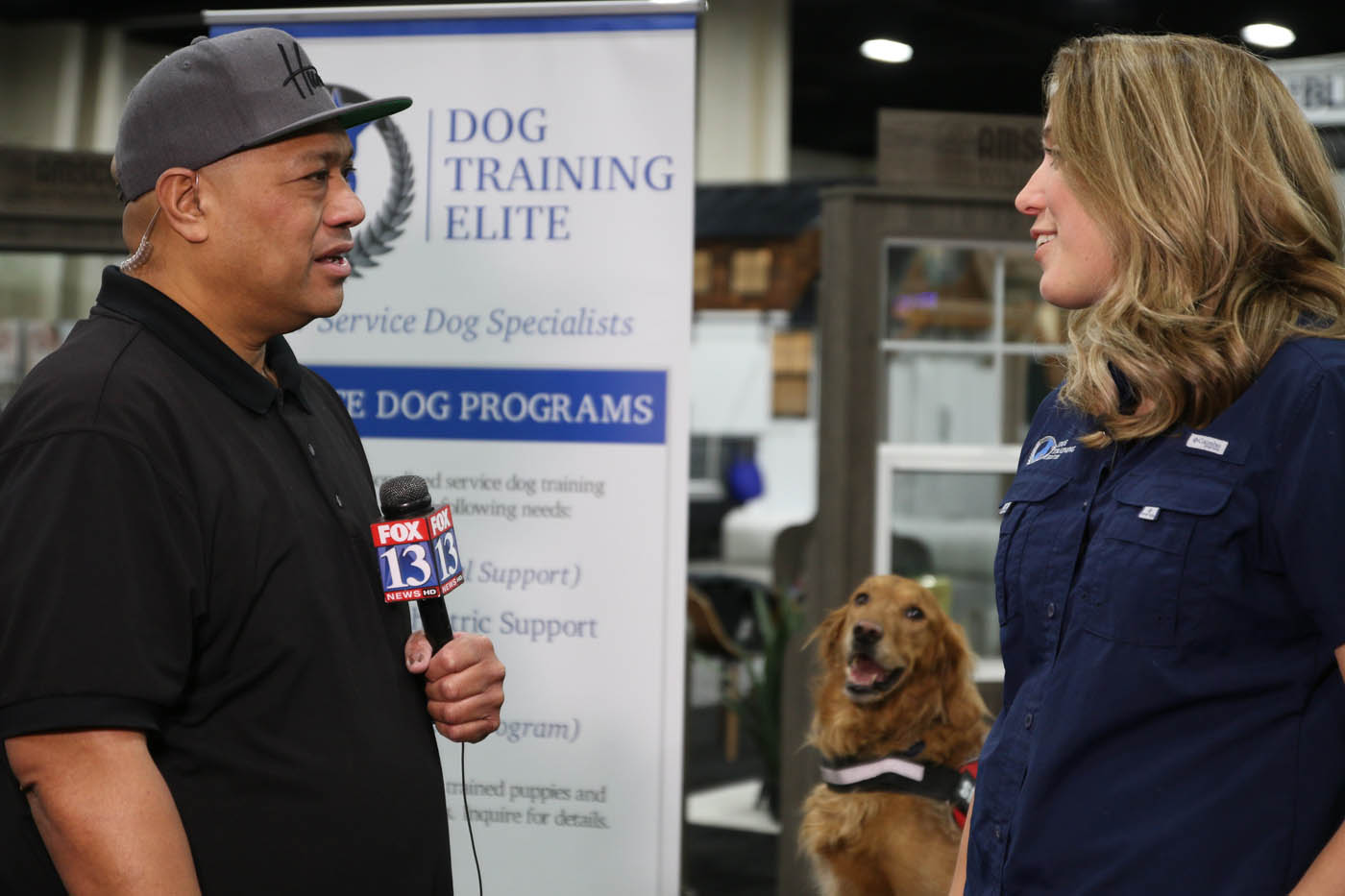How to Recognize Signs of Stress in Your Dog in Durham and Chapel Hill, NC
January 25, 2020
Changes in your dog's behavior are worrying when you don't know what they're experiencing or how to help them in Durham and Chapel Hill, NC
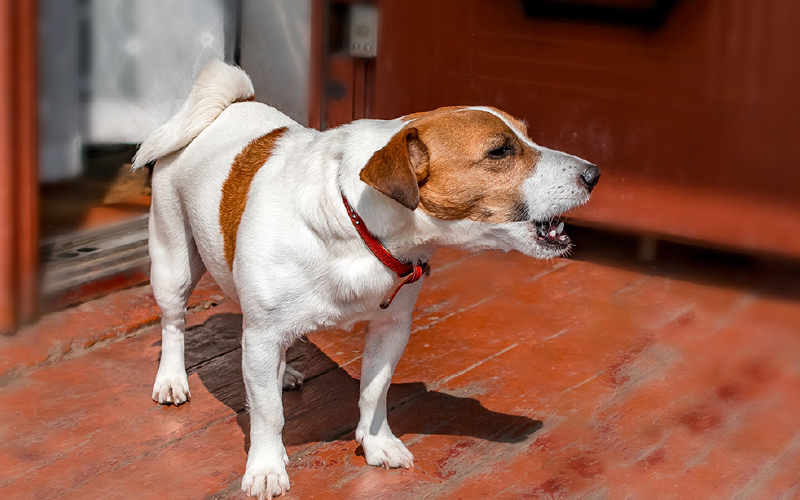
Changes in your dog’s daily behavior are worrying when you don’t know what they’re experiencing or how to help them. Here are some of the signs that can help you recognize stress or anxiety in your dog, brought to you by our experts in positive puppy training in Durham and Chapel Hill, NC.
Digestive Issues or Vomiting
Gastrointestinal problems such as diarrhea, constipation or vomiting can be caused by a high level of anxiety in your dog. Though they are commonly attributed to foodborne illness or intolerances, contact your veterinarian to discuss probable causes if the issue is ongoing or severe.
Aggression
Aggression in dogs is always a behavior to pay close attention to and could be a sign of an underlying problem. Anxious dogs often show their fear or try to defend themselves in a stressful situation by resorting to aggression. This can be accompanied by growling, a fearful stance, bared teeth, or submissive behavior. Fortunately, there are treatments to help replace aggression with other behavior management techniques. Contact your veterinarian or trainer to discuss further action.
Barking or Whining
It’s completely normal for dogs to express themselves through vocalization, but excessive barking and whining—whether it’s inside or outside—could point to anxiety. Take care to notice what triggers your dog to be overly vocal. Is it when strangers come over, when there’s a knock on the door, around unfamiliar dogs, when you leave the house? This could lead to an answer.
Loss of Appetite
Sudden loss of appetite can be an alarming action for your pup. Pets don’t diet or fast as a human would. Refusing to eat is a sign that your dog might be experiencing some kind of stress, and if a solution isn’t found it could lead to more serious health conditions.
Isolation and Avoidance
Most pups love being around people and socializing, and you already know if your dog is naturally like this. While every dog needs some alone time every once in a while, dogs that begin to constantly isolate themselves and avoid socialization with people or dogs for no reason is a telltale sign of stress and anxiety.
Strange Relaxed Behavior
Dogs usually assume a relaxed posture with their weight bared on all four legs. If your dog shifts their weight to their rear legs, cowers, tucks their tail, or becomes rigid with no health issues that would cause them to do so, they may be experiencing stress.
Increased Sleeping
Dogs have pretty regular sleep schedules, and you’re likely familiar with your dog’s routine. If you notice your pup getting easily fatigued and sleeping for an abnormal amount of time, speak with your veterinarian about the possibility of it being caused by stress or anxiety.
Excessive Panting
Dogs pant when they’re hot to release body heat and cool themselves down, much like we do when we sweat. If you notice them panting for no reason, even accompanied by their ears pinned back or whining, this is most likely a sign of stress. Be cautious if the panting suddenly stops, as your dog could become anxious enough to bite.
Unfortunately, dogs can’t speak to us to tell us what they’re experiencing, but it’s possible to pick up on the signs they give us if we can recognize them. Knowing the signs of stress and anxiety in your dog will make it easier to get them help.
Do you have any questions or concerns? Contact Dog Training Elite today to discuss dog training courses in Durham and Chapel Hill, NC for the best friend in your life, we're happy to help!
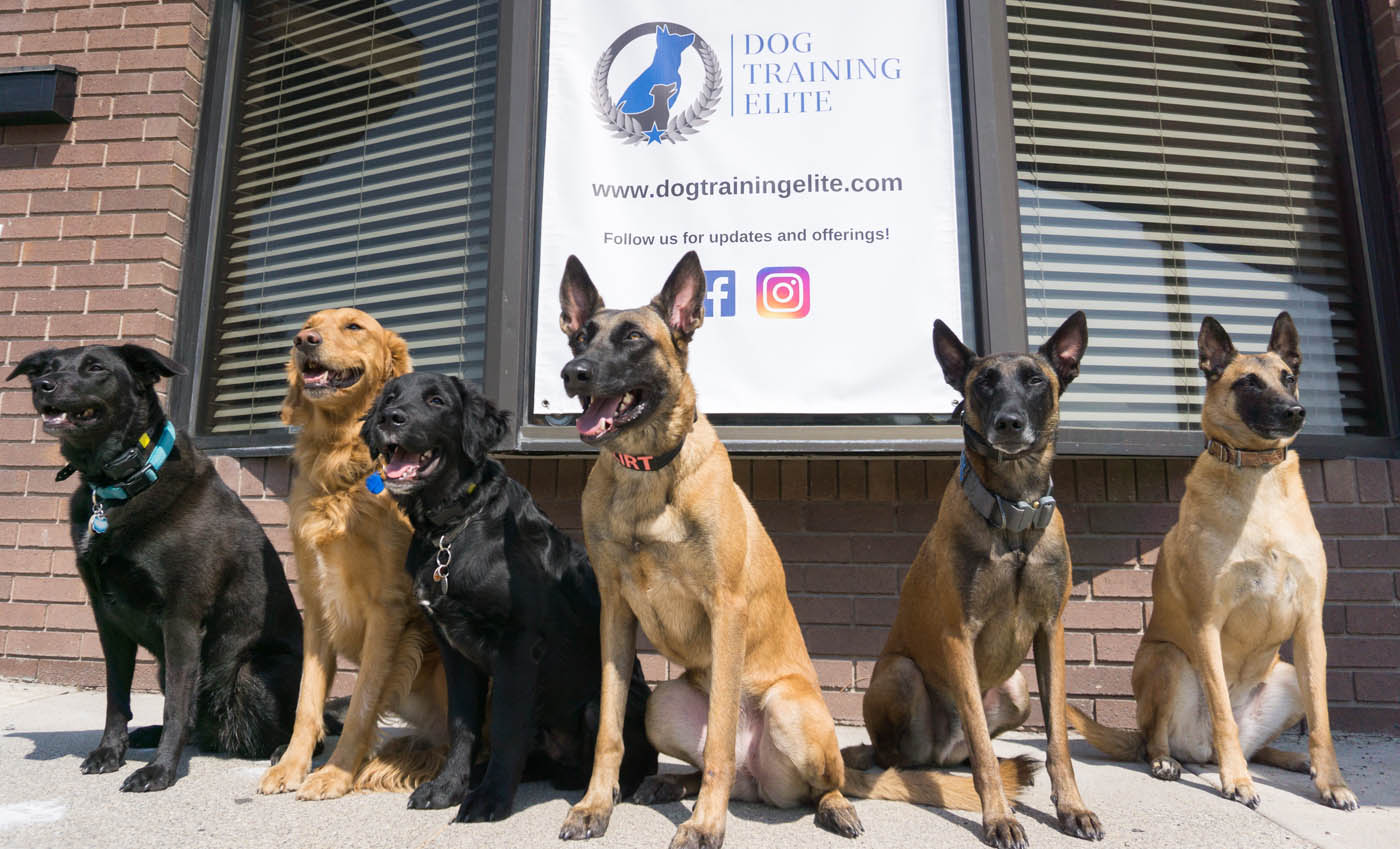
Get Your Free Assessment
You and your canine companion really can have it all. See how easy it can be to become a member of the elite pup society by requesting a free consultation today!
